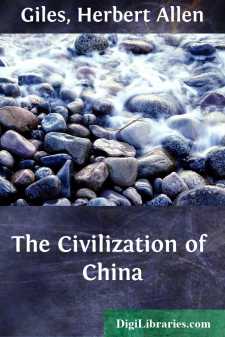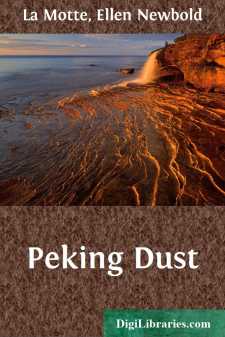History
- Africa 30
- Americas (North Central South West Indies) 50
- Ancient 68
- Asia
- Australia & New Zealand 8
- Canada 41
- Caribbean & West Indies 1
- Civilization 20
- Eastern Europe 12
- Europe 310
- Expeditions & Discoveries 60
- General 77
- Historical Geography 1
- Jewish 9
- Latin America 3
- Medieval 8
- Middle East 14
- Military 248
- Revolutionary 8
- Study & Teaching 5
- United States 353
- Western Europe 56
- World 13
Asia Books
Sort by:
CHAPTER I—THE FEUDAL AGE It is a very common thing now-a-days to meet people who are going to "China," which can be reached by the Siberian railway in fourteen or fifteen days. This brings us at once to the question—What is meant by the term China? Taken in its widest sense, the term includes Mongolia, Manchuria, Eastern Turkestan, Tibet, and the Eighteen Provinces, the whole being...
more...
FOREWORD This report describes the effects of the atomic bombs which were dropped on the Japanese cities of Hiroshima and Nagasaki on August 6 and 9, 1945, respectively. It summarizes all the authentic information that is available on damage to structures, injuries to personnel, morale effect, etc., which can be released at this time without prejudicing the security of the United States. This report...
more...
CHAPTER I—THE NÜ-CHÊNS AND KITANS The Manchus are descended from a branch of certain wild Tungusic nomads, who were known in the ninth century as the Nü-chêns, a name which has been said to mean "west of the sea." The cradle of their race lay at the base of the Ever-White Mountains, due north of Korea, and was fertilised by the head waters of the Yalu River. In an illustrated Chinese work...
more...
CHAPTER I THE HISTORIOGRAPHER'S ART IN OLD JAPAN MATERIALS FOR HISTORY IN the earliest eras of historic Japan there existed a hereditary corporation of raconteurs (Katari-be) who, from generation to generation, performed the function of reciting the exploits of the sovereigns and the deeds of heroes. They accompanied themselves on musical instruments, and naturally, as time went by, each set of...
more...
PREFACE ON my return from another visit to Japan a few months ago I found those persons in this country with whom I was brought into close association extremely curious and strangely ignorant regarding that ancient Empire. Despite the multitude of books which have of late years been published about Japan and things Japanese a correct knowledge of the country and the people is, so far as I can judge,...
more...
ANGLO-CHINESE LIFE Anglo-Chinese life is a sealed book to most people at home, who, if they ever think about it at all, do so with minds adversely biassed by ignorance of the conditions, a hazy idea of intense heat, and a remembrance of cruel massacres. "Going to China" always elicits looks and exclamations of astonishment at so rash an undertaking, but which the stock questions as to whether...
more...
by:
Emma Helen Blair
PREFACE In this volume is presented the first installment of Dr. Antonio de Morga's Sucesos de las Islas Filipinas. Events here described cover the years 1493-1603, and the history proper of the islands from 1565. Morga's work is important, as being written by a royal official and a keen observer and participator in affairs. Consequently he touches more on the practical everyday affairs of...
more...
CHAPTER I Misconceptions about India. Hinduism. An "infernal religion." Hindu mythology. Ascetics. Translations of Hindu sacred books. Modern and ancient ways of teaching Christianity. Danger of the incorporation of a false Christ into Hinduism. Hindu India as it really is. Definitions of "What is Hinduism?" from representative Hindus. India is not really quite so mysterious a country...
more...
KOREA'S FIGHT FOR FREEDOM "Mr. F.A. McKenzie has been abused in the columns of the Japanese press_ with a violence which, in the absence of any reasoned controversy, indicated a last resource. In answer to his specific charges, only one word has been uttered—'lies!' "Yet these charges embrace crimes of the first magnitude—murder, plunder, outrage, incendiarism, and in short...
more...
I POOR OLD CHINA When I came away last August, you said you wanted me to tell you about our travels, particularly about China. Like most Americans, you have a lurking sentimental feeling about China, a latent sympathy and interest based on colossal ignorance. Very well, I will write you as fully as I can. Two months ago my ignorance was fully as overwhelming as yours, but it is being rapidly dispelled....
more...











